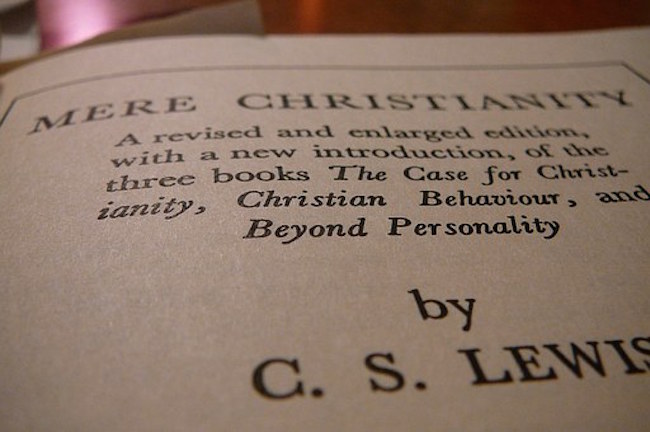Sexual Morality by C.S. Lewis Video
This is an illustration of Lewis’ 4th talk of the third radio series called ‘Christian Behaviour’. This became Chapter 5 of Book 3, in the book called ‘Mere Christianity’.
(0:36) “and in what words” – Lewis: “Sit down and draw your nude. When you have finished it, take your pen and attempt the written description. Before you have finished you will be faced with a problem which simply did not exist while you were working at the picture. When you come to those parts of the body which are not usually mentioned, you will have to make a choice of vocabulary. And you will find that you have only four alternatives: a nursery word, an archaism, a word from the gutter, or a scientific word…And this is going to be very troublesome …for it gives a particular tone to your composition (C.S. Lewis, Essay ‘Prudery and Philology’).
(1:13) “A naughty hussy” – In the 1500’s, ‘naughty’ meant poor, ‘hussy’ meant housewife, ‘cunning’ meant skilled, and ‘pretty’ meant cunning.
(6:23) In ancient Greece, sodomy and child-sex were not illegal in many cases, but they were considered immoral. They were sternly prohibited by Aristotle and was continually tittered at by Plato.
(6:53) In the original broadcast published by the Daily Mirror, Lewis mention eating earth. Eating dirt was a perversion mention by Aristotle.
(9:54) The view that the body is a “sack of dung,” food for worms, filthy and shameful was, oddly enough, a common view among ancient ascetic pagans (See ‘The Four Loves’ by C.S.Lewis).
(11:18) In the original broadcast this passage was cut down to simply: “The real moral question is, given that situation, what we do about it. If we really want to be cured, I think we shall be. I mean, if a man tries to go back to the Christian rule — if he makes up his mind either to abstain from sex altogether, or to marry one woman and stick to her — he may not completely succeed, especially at first. But, as long as he picks himself up each time, and starts again as well as he can, he will be on the right track. He won’t damage his central self beyond repair.”
(11:57) Augustine. ‘Confessions’, Book 8: “…For I feared lest God should hear me immediately, and immediately cure me of the disease of inflamed lust, which I wished to have satisfied, rather than extinguished.”
(16:51) Indulged desire, the surrender to your every sexual impulse is seriously dangerous to your mental health – i.e. NOT resisting a known sexual temptation. In fact, there is nothing more dangerous to your mental health than sin. In the Bible, mental disorders were one of the curses on disobedience. Nothing is more calming than adding faith in God and the hope of His salvation into even the most distressing situation (Psalm 91:7). The choice to sin usually comes first before the mental disorder, not the other way around (Deut. 28.34) and repentance does the world of good.
(18:20) Lewis clarified what he meant in terms of the center of Christian morality in a later chapter called ‘The Great Sin’. See also 1 John 2.16 – the lust of the flesh (the sin nature), and the reception of an opportunity to sin (the lust of the eye) are not enough to cause unchastity. It is ‘the pride of life’ – the part of us that says ‘I deserve this’ or ‘why can’t I have it?’ – that causes us to fall prey to any given temptation, from minor to grave. Sexual sin, though a fleshly sin, is unique among the sins in that it is the only one that causes you to sin “against one’s own body” (1 Cor 6.18). It is a ‘gateway sin’ that can cripple the Christian life (Luke 8.14) or destroy it altogether. Unchastity was the only way the ancient people of God could be successfully attacked on the way to the Promised Land (see Numbers 25). It is usually a Christian’s first test of priorities in life – whether God hold’s ultimate sway in one’s life or not.
(19:08) Matthew 21.28-32



